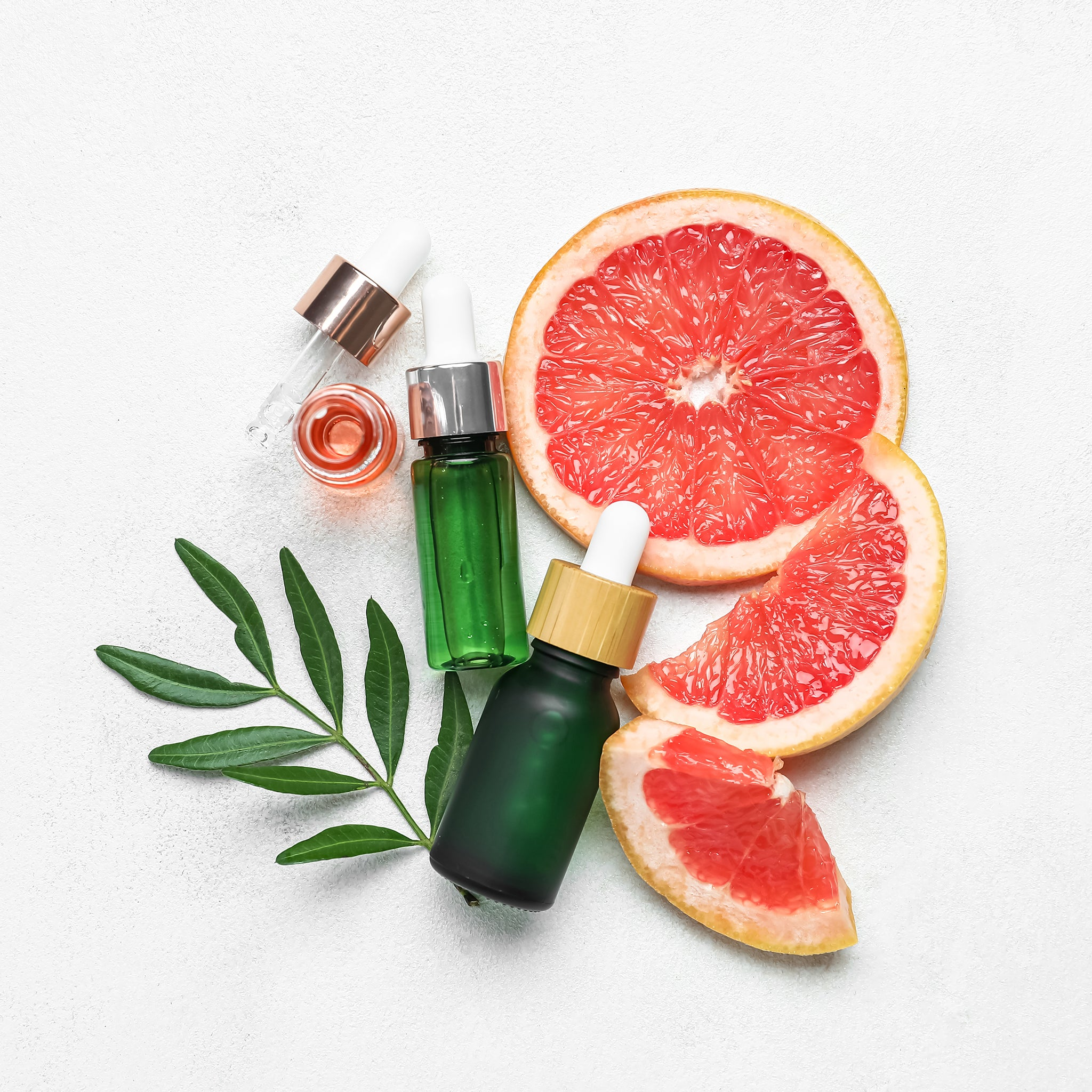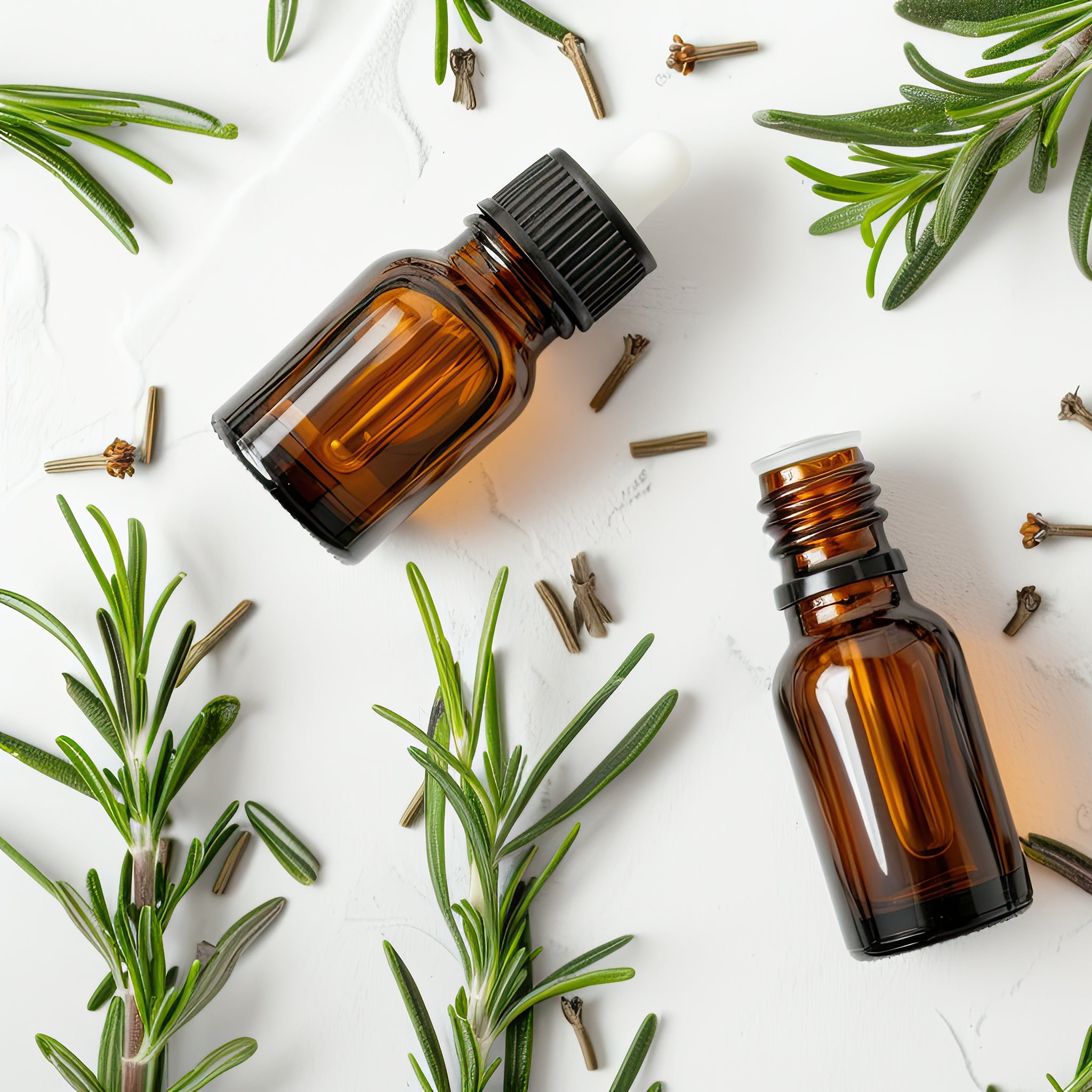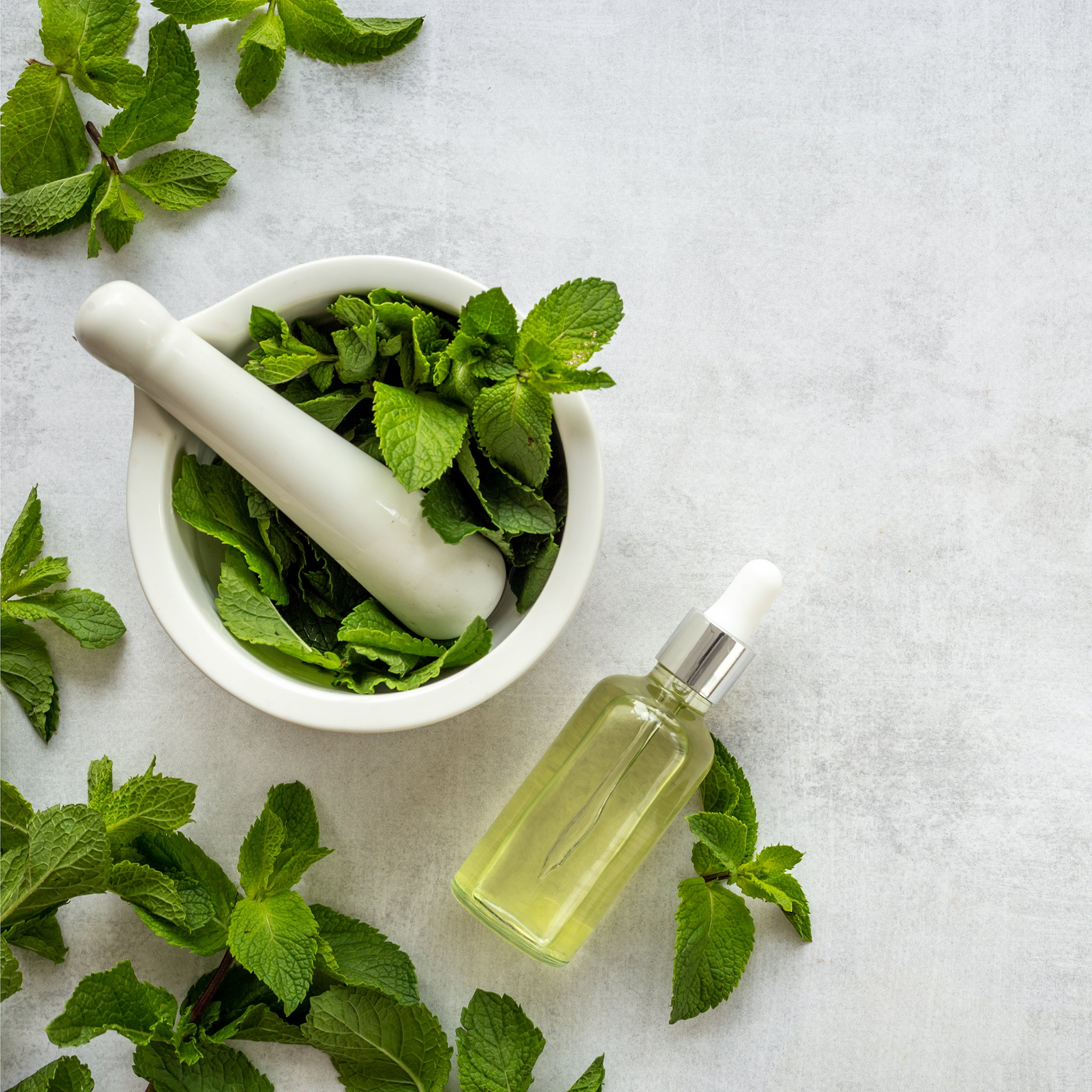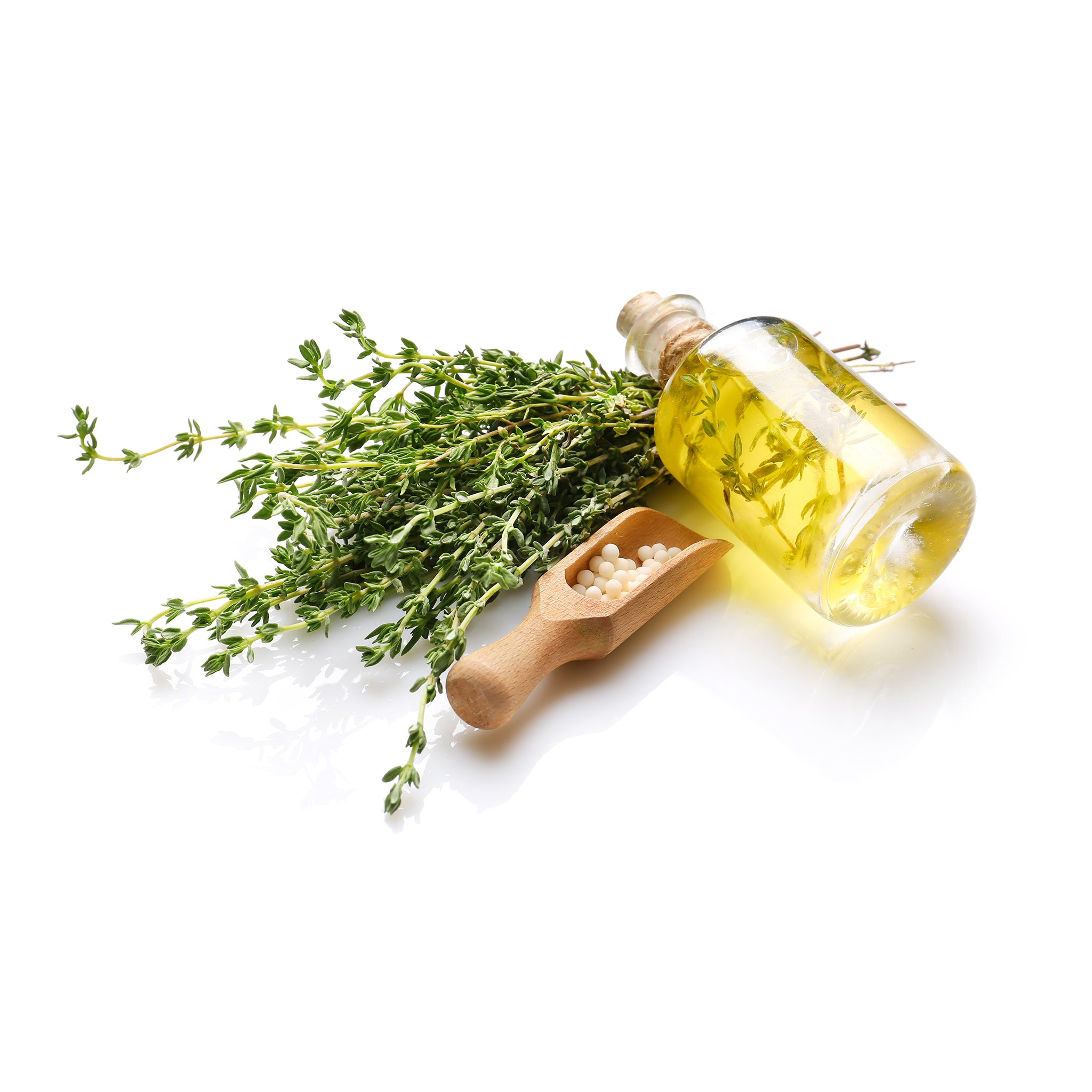
As people and as pet owners, VetsRef’s goal is to have products that solve problems without having a long list of side effects or warnings. This led us to essential oils. Like anything “powerful”, essential oils must be formulated properly to be beneficial. Our formulas are time tested, free from side effects and, natural.
Our goal has been to help pet owners- for both ourselves and our customers, to have chemical-free, effective products that solve common pet-related problems. We feel that saying something is “natural” does not mean that they are any less effective.
We found that essential oils can be more effective than “man made” ingredients. We feel the reason more companies don’t use essential oils is the cost. It takes a great deal of each plant to distill down to the essential oils. This provides not only the “active ingredients” that scientists may discover, but the rest of the natural plant essence.
Most of what is left is rarely studied individually, mainly due to costs. It costs a lot of money to study- but if the company putting up the money can’t get a patent, those studies are frequently never begun.
So, simply put, nature is generally not patentable- so no one will spend the money to figure out everything an essential oil can do if there is no way to recoup the money spent.
We have all seen references to “Eastern Medicine” and “Western Medicine.” An oversimplified way to view the difference is that Eastern Medicine acknowledges that natural things can have repeatable effects on people and pets.
“Western Medicine” seemingly is limited by legal and regulatory limitations so we in “the West” end up relying on “drugs” that have been through the regulatory and legal hoops versus believing that, using our Membrane Mobility product as an example, the membrane in an eggshell can help people and pets although “western science” acknowledges that that same membrane is critical for chicks to form joints, skin and feathers.
Our Essential Oils

Grapefruit Seed Extract
Grapefruit seed extract (GSE) is derived from the seeds, pulp, and white membranes of grapefruits.
- Benefits include:
- Antimicrobial Properties
- Antioxidant Properties
- Digestive Health
- Skin Health
- Immune Support
- Oral Health

Rosemary Oil
Rosemary oil, extracted from the rosemary plant, has been used for centuries in traditional medicine and aromatherapy due to its numerous health benefits.
Here are some key health benefits of rosemary oil:
- Improves Cognitive Function
- Reduces Stress and Anxiety
- Pain
- Relief
- Enhances Hair Health
- Boosts Immune System
- Improves Digestion
- Respiratory Health
- Skin Health
- Reduces Inflammation
- Antioxidant Properties

Peppermint Oil
Peppermint oil is an essential oil extracted from the peppermint plant, a hybrid of watermint and spearmint. It has a strong, refreshing, minty aroma and is widely used for its therapeutic properties. Below are key benefits of peppermint oil:
- Relieves Headaches and Migraines
- Aids Digestion
- Supports Respiratory Health
- Alleviates Muscle and Joint Pain
- Improves Skin Health
- Boosts Energy and Mental Clarity
- Supports Hair Health
- Relieves Nausea

Thyme Oil
Thyme oil is an essential oil derived from the leaves and flowers of the thyme plant (Thymus vulgaris), a member of the mint family. It is extracted through steam distillation and has a warm, spicy, and herbaceous aroma. Thyme oil is known for its powerful antiseptic, antibacterial, and antifungal properties, making it a popular ingredient in natural health and wellness products. Below are key benefits of thyme oil:
- Antimicrobial Properties:
- Respiratory Health:
- Skin Health:
- Anti-inflammatory Effects:
- Antioxidant Properties:
- Digestive Health:
- Immune System Support:
- Mood Enhancement:
- Hair Care:
FAQs
Why Use Essential Oils?
Societies and cultures for thousands of years have used plant-based holistic remedies which include essential oils. We believe that those years of use and empirical (versus lab trial related) results are a fair representation of what one can expect if the plant or essential oils are used.
Essential oils are composed of molecules small enough so they can penetrate cells as compared to fatty oils (like those in vegetables or nuts) which have large molecules that cannot penetrate cells. Cell penetration is useful, if not necessary, to have any potential therapeutic benefits.
Fewer Side Effects: Natural remedies are often perceived as having fewer side effects compared to pharmaceutical drugs, which can sometimes cause adverse reactions or interactions with other medications.
Holistic Approach: Natural remedies often take a holistic approach to health, addressing not just symptoms but also believed to address imbalances in the body which may not be fully understood.
Prevention: Many natural remedies focus on supporting the body's natural healing
mechanisms and boosting overall health, which may help prevent illnesses and promote longevity.
Why Natural Oils Cost More Than Synthetic
Essential oils are made from natural, pesticide-free ingredients in order to distill the purest product for maximum health benefits.
Essential Oils are generally more concentrated than synthetic oils.
Essential Oils contain the majority of the ingredients found in nature (excluding things like fiber) whereas synthetic oils frequently contain oils not associated with the plant it self in addition to the limited number of synthetic “active” ingredients in that synthetic oil.
Essential Oils are like the underlying plants themselves, namely, all of the ingredients are hardly ever studied independently - so one will likely never find all of the real health benefits of Rosemary, for instance, but you can read about one active ingredient in rosemary - rosmanol, however, the remaining 400-500 phytochemicals and constituents including rosmarinic acid, carnosic acid, carnosol, rosmanol, camphor, camphene among others may not have the same “scientific” attention individually let alone together as found in Rosemary and Rosemary Essential Oil.
It takes A LOT of plant material to make essential oils, examples include: 5 to 6 pounds of peppermint plant to produce 1 ounce of peppermint essential oil, 50 to 100 pounds of thyme plant to produce 1 pound of thyme essential oil, and essential oil, 20 to 30 pounds of rosemary to produce 1 pound of rosemary essential oil.
Essential oils are pure plant extracts made from a variety of plant materials, including flowers, leaves, stems, roots, resin and other parts of the plants. Essential oils are distilled into concentrated oils which do not contain fatty acids like most oils but they do contain rather volatile organic compounds which are generally accepted and believed to be potent and therapeutic.
What is the Catch?
Like anything highly concentrated, Essential Oils need to be used in very small amounts and may need to be added to other items (carrier oils, lotions, etc) to be used easily. Essential Oils can be dangerous if used wrong - which is the reason for VetsRef - we have veterinarian approved, doctor designed
formulations that use just the right quantity of essential oils to maximize efficacy while removing or minimizing any risks.
